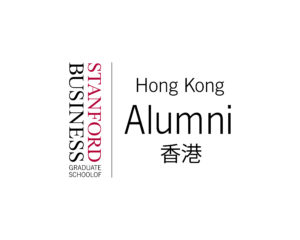Impossible Foods & the Hungry Carnivore
Speaker Series: Nick Halla,
1st Employee and Head of International, Impossible Foods
Breakfast, Thursday, 2 August 2018, 08:00-10:00 am, The Hong Kong Club
It’s Not Kumar’s White Castle Anymore: How a GSBer and a Stanford Biochemist’s Meatless Proteins (Meat, Fish, Cheese) are Outcompeting Animals, Disrupting the Food Industry, Upending Concepts About Taste, and Could Perhaps Save the Planet Along the Way…
Event Details:
Mr. Richard Hext on behalf of The Stanford GSB Chapter of Hong Kong is pleased to invite you a special breakfast with Nick Halla, Head of International and the First Employee at Impossible Foods, the most successfully funded food start-up in history that is disrupting how hungry carnivores think about meat.
Founded in 2011 by Stanford biochemistry professor and former pediatrician Dr. Patrick O. Brown, the goal is to “do good by tasting delicious.”
Impossible only began selling to restaurants in 2016. Less than 2 years later, today, its first product, the “Impossible Burger” is already in nearly 3,000 outlets in the USA and Hong Kong, showcased by such leading/Michelin chefs such in NYC as David Chang/Momofuku and Brad Farmerie/Saxon+Parole & Public; in San Francisco with Traci Des Jardins/Jardiniere and Chris Cosentino/Cockscomb; and Michael Symon/B Spot Burgers in the Midwest along with such iconic fast-food chains such as Fatburger and White Castle (where a USD 1.99 “Impossible Slider” flies off the shelves). Here in Hong Kong, the Company’s Asian showcase, the burger is launching in partnership with such chefs May Chow of Little Bao and Happy Paradise and Uwe Opocensky of Beef & Liberty, and is now in over 25 local restaurants and hotels.
In parallel, the Company has raised almost USD 400 MM from Temasek, Bill Gates, Google Ventures, Khosla Ventures, Li Ka-shing’s Horizons Ventures and Viking Global Investors, among others. Last fall, Impossible Foods opened its first production facility in Oakland, CA, which will be able to produce more than 1 MM pounds a month at capacity (roughly 4 MM burgers).
The mission behind the business is to create a more sustainable food system, with its first product, the Impossible Burger, using approximately 95% less land, 74% less water, and producing 87% less greenhouse gas emissions than meat from a cow in a world where cattle contribute to 10% of all greenhouse gas emissions and occupy approximately 45% of the world’s land surface. The Impossible Burger is made from simple ingredients, including water, wheat protein, potato protein and coconut oil. One special ingredient — heme — contributes to the characteristic taste of meat and is the essential catalyst for all the other flavors when meat is cooked. Other proteins – fish, cheese/dairy, etc – are on the horizon.
Where does Impossible go from here? How does Impossible create a new consumer movement to change the way global consumers think about food? How does it tackle China – perhaps the greatest prize of all? What are the trade-offs of its decision not to sell retail before conquering restaurants? And, will the other future products (fish, cheese/dairy) taste just as good?
The Stanford GSB Chapter of HK could not be more honored to have Nick share his insights, experience and wisdom on all of the above. We hope you can join us.
Speaker’s Bio:
Nick Halla joined Impossible Foods in 2011 as its first employee, helping build the company from the ground up as the initial business partner to Impossible’s CEO and Founder Dr. Pat Brown. Nick has recently taken on the task of builidng and leading Impossible’s international business to drive global growth and impact.
Having grown up on a Minnesota dairy farm, Nick became an expert in food commercialization at General Mills, where he developed and launched new products and designed large-scale food manufacturing systems. Separately, Nick is on the Board of Directors of Lyrical Foods, maker of Kite Hill nut milk based cheeses and yogurts and has been involved in his career in the commercialization of solar, energy storage and biofuel technologies.
Nick holds a B.S. in Chemical Engineering from the University of Minnesota, a dual MBA from the Stanford Graduate School of Business, and an M.S. in Environment and Resources from the Stanford School of Earth Sciences.






